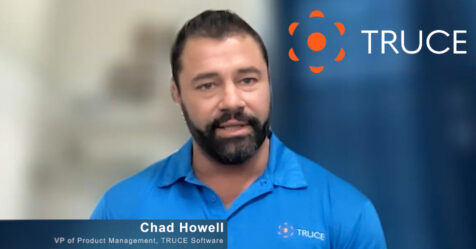What were your last 10 or 15 employee conversations like?
Chances are, they included phrases like, “I need you to finish that project by the end of the day,” or, “I’m putting you on the Brown account,” or, “How much longer do you think it’ll take to finish that PowerPoint the client requested?”
After all, you can’t run a business without addressing these types of issues.
And chances are, unless they were delivered in a, shall we say, forceful tone of voice, your employees don’t mind hearing pertinent instructions and questions.
So why does their morale seem to be, well, wilting?
According to Todd Patkin, the problem might not be what you’re saying, but what you’re not saying.
The good news is, with a few well-chosen words, you can nurture employee relationships and help their engagement blossom.
“In the midst of the everyday chaos of running a business, leaders often don’t think about what they could or should say to motivate their employees,” says Patkin, author of Finding Happiness: One Man’s Quest to Beat Depression and Anxiety and — Finally — Let the Sunshine In. “Often, leaders assume that their employees know how they feel — about each person’s individual performance and about the company’s health in general. Usually, though, that’s not the case.”
Patkin speaks from experience.
For nearly two decades, he was instrumental in leading his family’s auto parts business, Autopart International, to new heights until it was finally bought by Advance Auto Parts in 2005.
Online Exclusive: Listening To Employee Feedback
One of his most reliable growth strategies, he reports, was proactively nurturing his employees’ attitudes about their jobs by engaging them in conversation.
Now, Patkin translates that experience into consulting with organizations to help them build corporate morale and promote greater productivity.
“They’d never bring it up themselves, but there are certain phrases your employees really want to hear from you,” Patkin confirms. “Some have to do with affirmation; others center on encouragement, reassurance, respect, gratitude or trust. When you verbalize these things — which takes only a few seconds of your time — you will notice a big change in your employees’ motivation, commitment and productivity.”
If you start incorporating these phrases into your at-work vocabulary, Patkin promises, your employees’ engagement will “blossom” this spring:
“I need your help.”
The age of rule-with-an-iron-fist, top-down leadership is fading fast.
More and more, organizations in all industries are realizing that there’s an almost-magical power in the synergy of teams.
Here’s how that applies to you: Your employees all have unique skill sets, experiences and ideas — so tap into them.
“Yes, your employees will be looking to you to steer your company in the right direction, but I promise, they know you’re human, and they don’t expect you to have all the answers,” Patkin comments. “So the next time you’re facing a difficult decision or brainstorming options, ask your team for help. Rather than losing respect for you as a leader, they’ll appreciate that you treated them as valued partners — and they’ll feel more invested in your company’s future because they had more of a hand in creating it.”
“How is your family?”
The truth is, people don’t care how much you know (or how good you are at your job) until they know how much you care.
Your employees will be more loyal and more motivated if they feel valued as individuals, not just as job descriptions.
So get to know each team member on an individual basis and incorporate that knowledge into your regular interactions.
For instance, if you know that John in accounting has a daughter who’s applying to college, ask him which schools she’s considering.
Or if Susanna in HR just came back from vacation, ask to see a few pictures.
“Showing genuine interest and caring is the greatest motivator I know,” confirms Patkin. “When you dare to ‘get personal,’ your employees’ desire to please you will skyrocket. That’s why, when I was leading my family’s company, I took advantage of every opportunity I could think of to let my people know I was thinking about them. I recommended books I thought they might enjoy. I sent motivational quotes to employees who might appreciate them. I attended all weddings, funerals, bar mitzvahs and graduations I was invited to. And you know what? Not only did I fuel my employees’ engagement … I also formed a lot of meaningful relationships that continue to this day.”
“What do you need from me?”
Often, employees are anxious about asking the boss for what they need, whether it’s updated office equipment, more time to complete a project, advice, etc.
They may fear a harsh response, want to avoid looking needy, or simply feel that it’s “not their place” to ask for more than you’ve already provided.
By explicitly asking what you can give them, you extend permission for your people to make those requests — and they’ll certainly appreciate it.
“Be sure to treat any requests you receive seriously,” Patkin instructs. “If you can’t give an employee what she asks for, explain why and work with her to find another solution. Either way, this question, and the conversations it sparks, can give you valuable insight regarding how to improve your company’s operations, facilities and culture. It can also show you how to best develop and support individual team members.”
“I noticed what you did.”
Every day, your employees do a lot of “little” things that keep your company running smoothly and customers coming back:
- Refilling the copier with paper when it’s empty.
- Smiling at customers after each transaction.
- Double-checking reports for errors before sending them on.
- And so forth.
Unfortunately, in many organizations, these everyday actions are taken for granted, which (understandably) has a negative effect on employee morale.
Online Exclusive: Creating An Efficient Small Team
“Your employees want to know that you notice and value the mundane parts of their jobs, not just the big wins and achievements,” Patkin confirms. “That’s why I recommend making it your mission to ‘catch’ as many of your employees as possible in a good act. Then, point out exactly what it is about their behavior that you appreciate. Phrases like, ‘Sal, I’ve noticed that you always take such care to keep the file room neat. Thank you!’ take about five seconds to say, but they can pay long-lasting dividends for your company in terms of morale and motivation.”
“Thank you.”
Yes, your employees may crave recognition for doing the mundane parts of their jobs, but that doesn’t mean that they won’t also appreciate a heartfelt “thank you” for bigger accomplishments.
Whether it’s “Thanks for staying late last night,” “Thanks for being so patient with Mrs. Smith — I know she can be a difficult customer,” “Thank you for making our first-quarter marketing campaign a success,” or something else, your people will treasure your appreciation more than you realize.
“People love to hear positive feedback about themselves, and in most cases, they’ll be willing to work a lot harder to keep the compliments and thanks coming,” notes Patkin. “Praise, especially when it comes from an authority figure, is incredibly fulfilling. (And sadly, it’s also rare.) On that note, make sure that you praise and acknowledge your people in a positive way more often than you criticize them. That’s because negative feedback tends to stick in most people’s memories longer, so you need to counterbalance it.”
“Hey, everyone — listen to what Riley accomplished!”
Everybody loves to be recognized and complimented in front of their peers.
So don’t stop with a “mere” compliment when an employee experiences a win — tell the rest of the team, too.
Whether correctly or incorrectly, many employees feel that their leaders point out only their mistakes in front of the group, so make it your daily mission to prove that perception wrong.
“When I was at Autopart International and I saw that one of my people did something noteworthy, I made sure that everyone else knew about it by emailing the story to the entire chain,” Patkin recalls. “I could literally see the glow on the highlighted employee’s face for weeks, and I also noticed that many of the other team members began to work even harder in order to earn a write-up themselves. Other successful recognition strategies included writing thank-you notes to my employees and publishing a company-wide monthly newsletter highlighting our ‘stars.’ Sometimes, I would even call my employees’ homes to brag on them to their families.”
“What would you like to do here?”
Sure, you originally hired each of your employees to do specific jobs.
But over time, your company has grown and changed — and so have your people.
That’s why Patkin says it’s a good idea to check in with each one of them periodically to ask what they’d like to be doing.
You might be surprised to learn, for instance, that your administrative assistant would like to be included in the next marketing campaign design team.
You might be even more (pleasantly!) surprised to find that her social media engagement ideas yield impressive results.
“Annual performance reviews might be a good time to discuss this topic with your employees,” he suggests. “No, you won’t always be able to accommodate every employee’s preferences. But whenever possible, keep job descriptions within your company fluid and allow your people to have a say in matching their skills to the company’s needs. This is one of the best ways I know to build loyalty and encourage your employees to really take ownership of their jobs. After all, they’ll have had a hand in designing them.”
Click here for part 2.
Todd Patkin, author of Finding Happiness:One Man’s Quest to Beat Depression and Anxiety and — Finally — Let the Sunshine In and Twelve Weeks to Finding Happiness: Boot Camp for Building Happier People graduated from Tufts University. He joined the family business and spent 18 years helping it grow. After it was purchased by Advance Auto Parts in 2005, he was free to focus on his main passions: philanthropy, giving back to the community and more.


